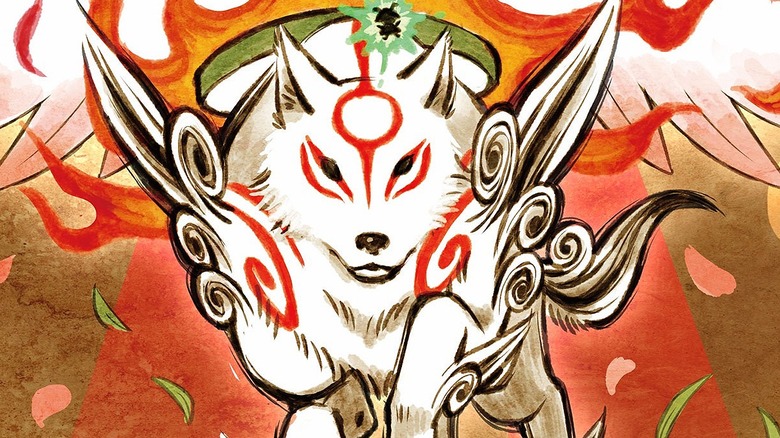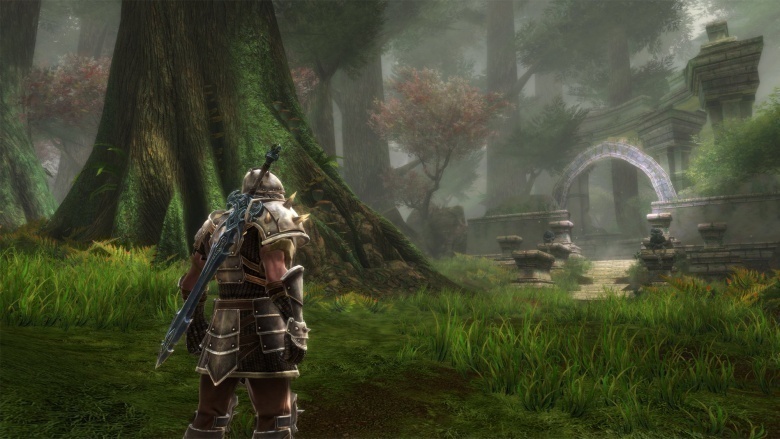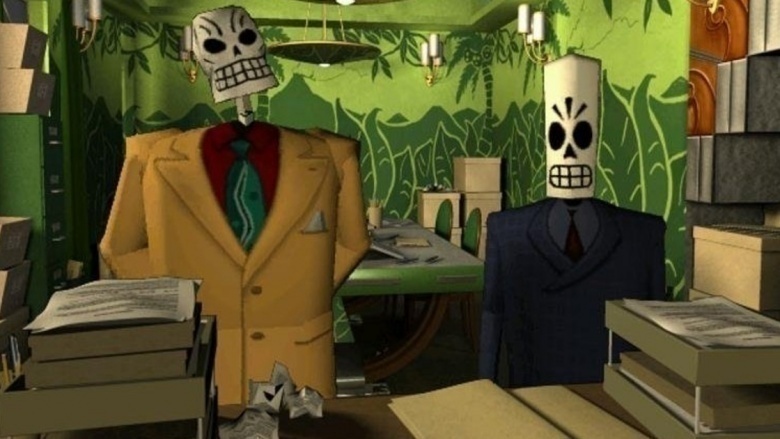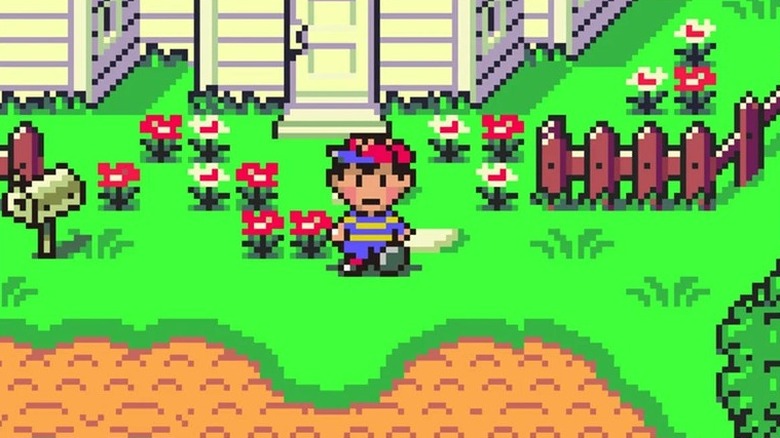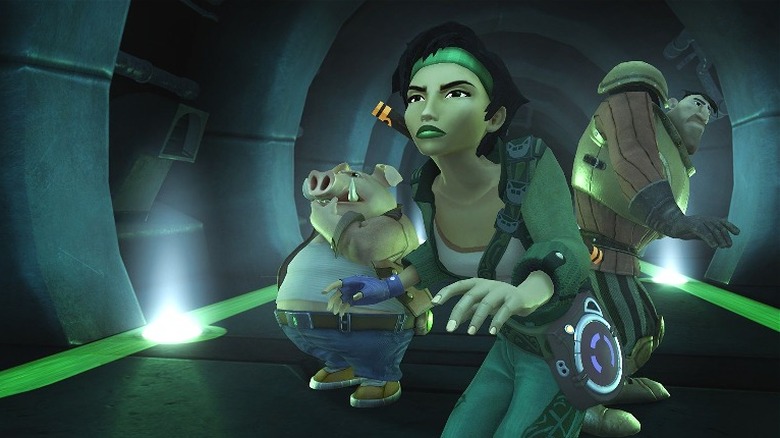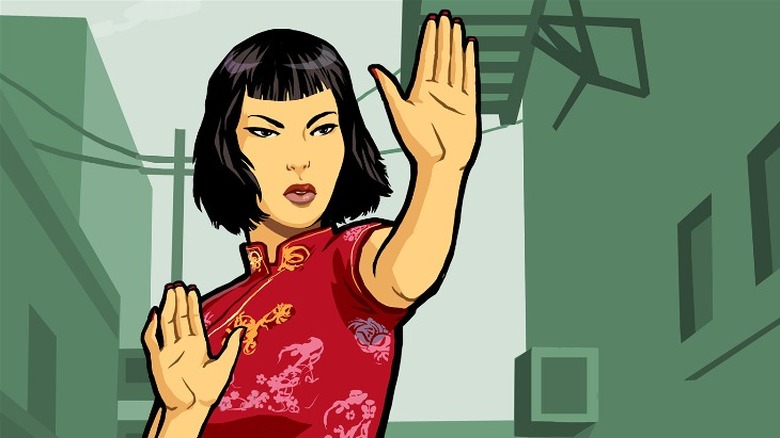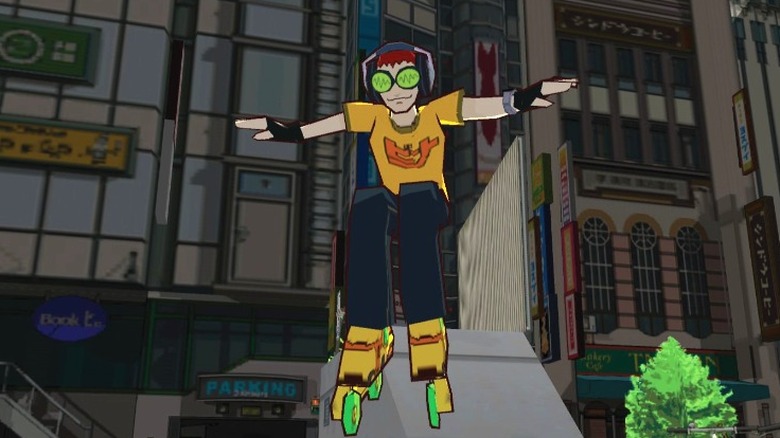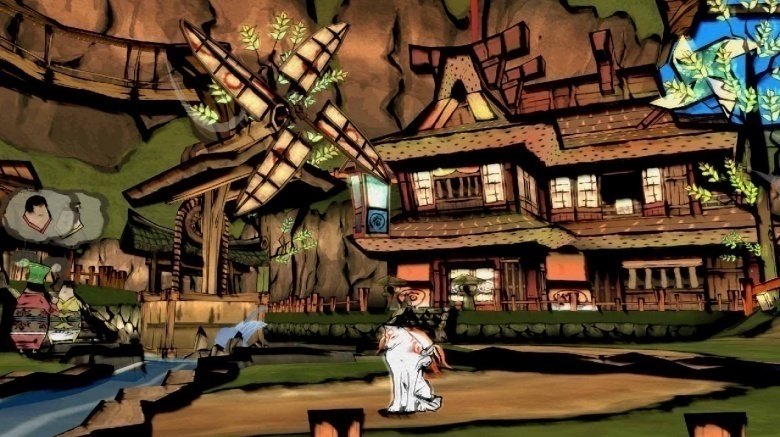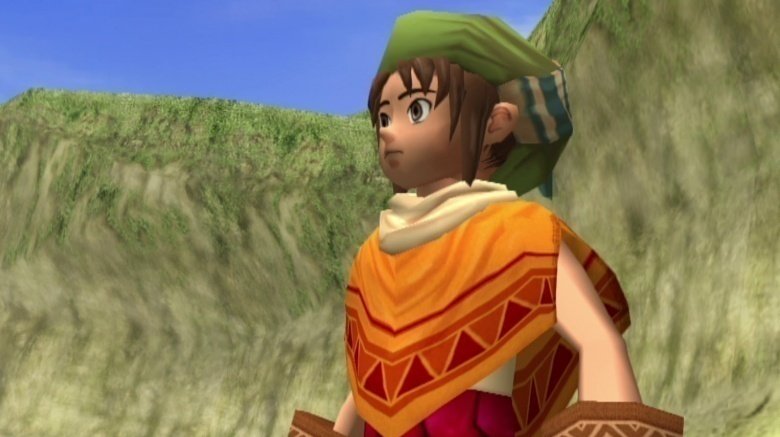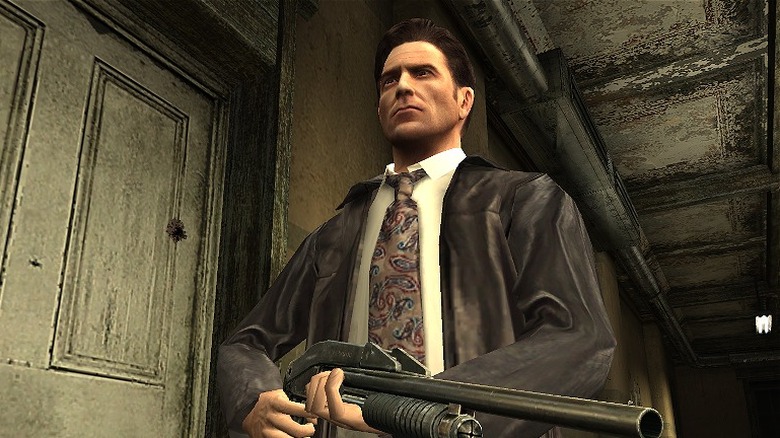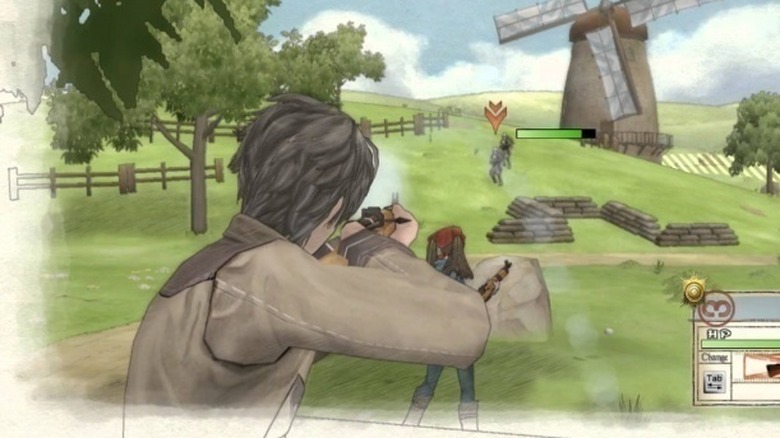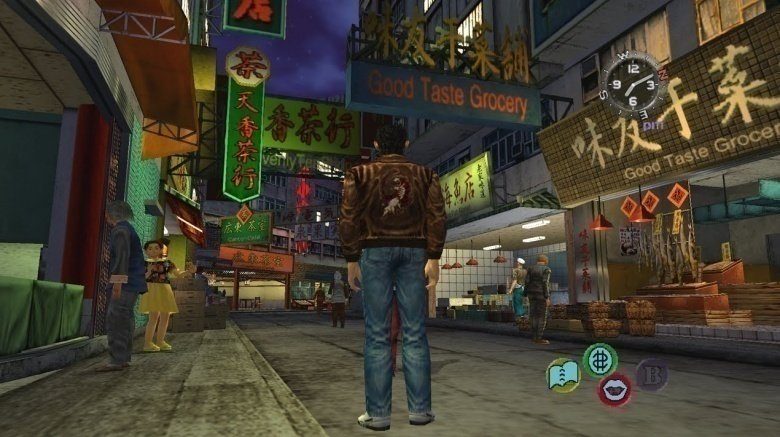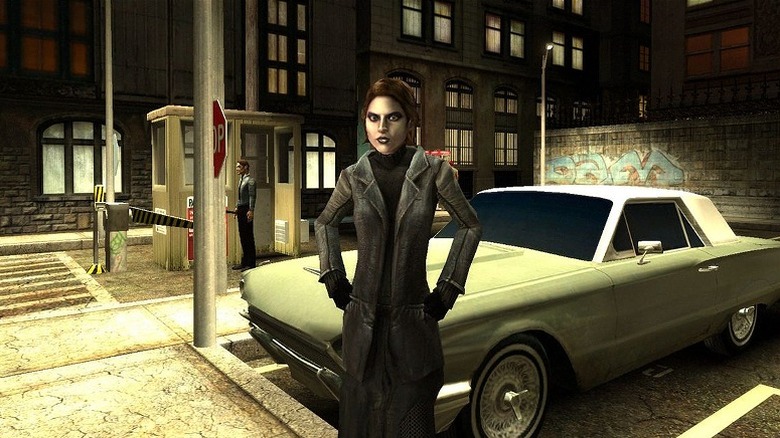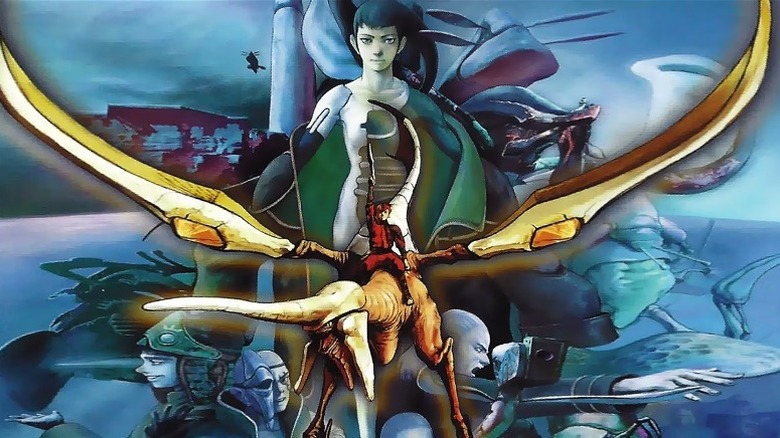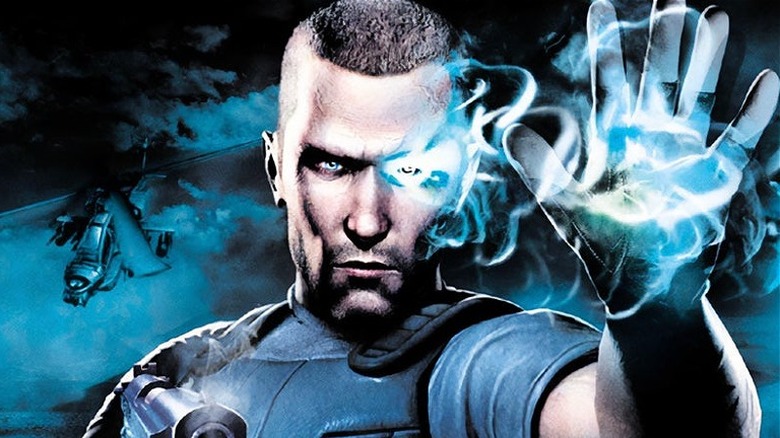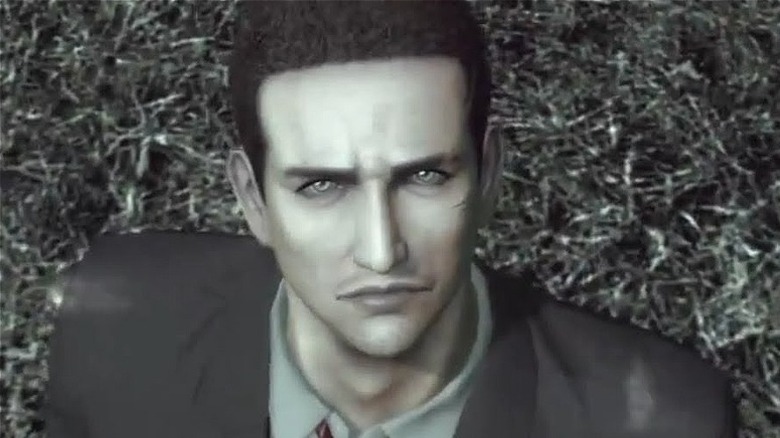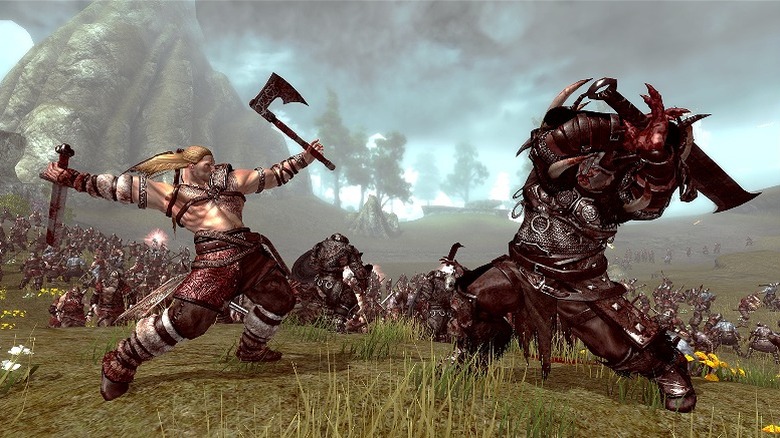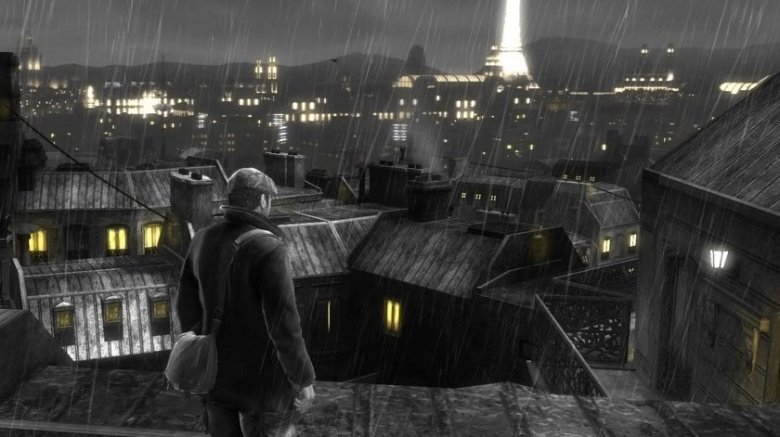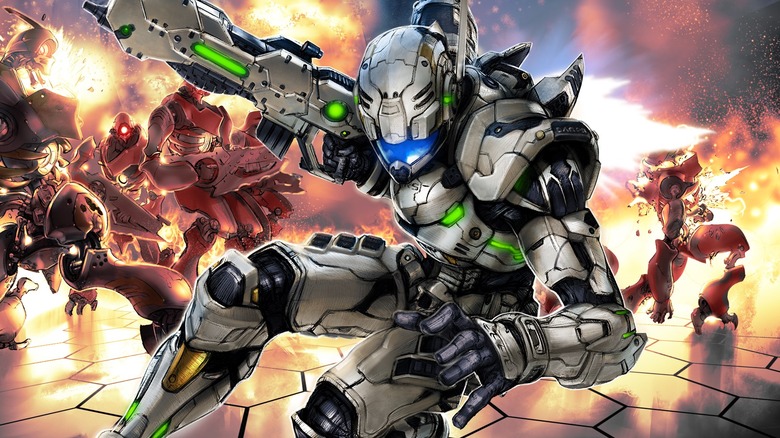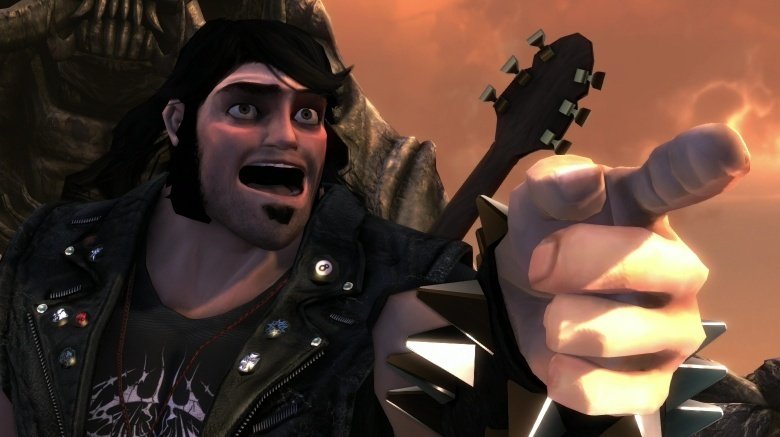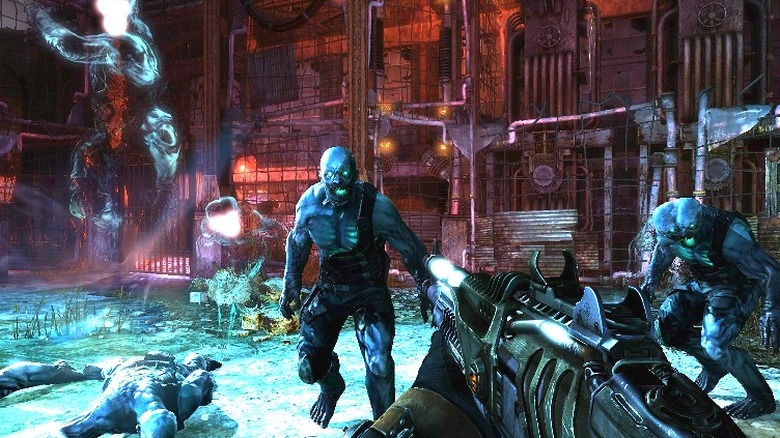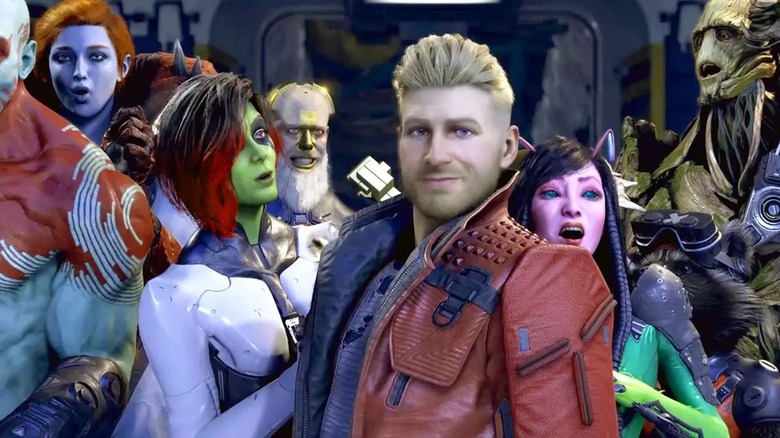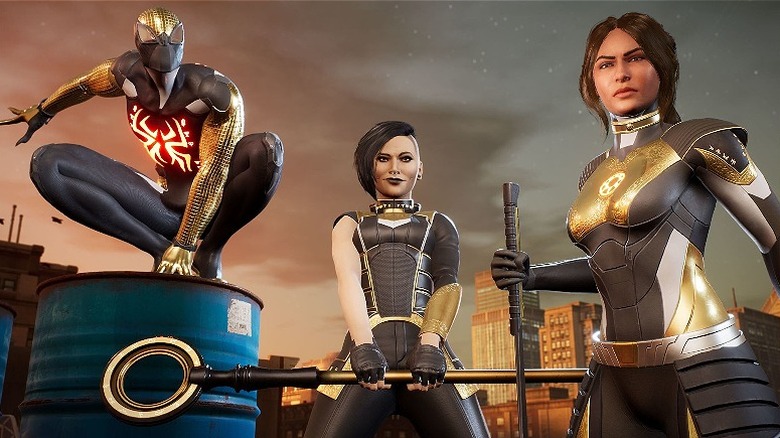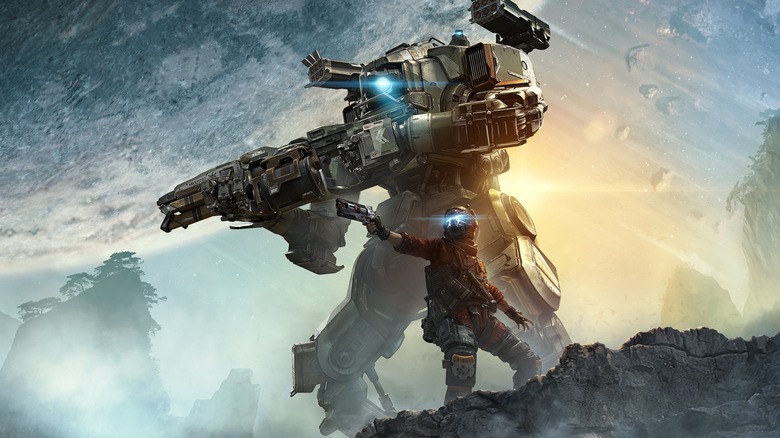Amazing Video Games No One Bought
Over the decades, the gaming industry has become a juggernaut. It regularly pulls in more money than Hollywood, and the biggest games earn more revenue than any of their counterparts in other media. Franchises like "Call of Duty" can cross over into mainstream success and even drive pop culture conversations. When network television shows are making "arrow in the knee" jokes, you know the medium has made it to the big time.
Unfortunately, not every game has that kind of luck, even if it deserves to. Sometimes, we come across games that only manage to be critical successes while performing poorly at retail. We lament these games, because not only were they awesome, but we wanted the amazing experiences they offered to spread throughout the industry. Let's pour one out for these games that were awesome, but just didn't sell like their big-name competition in a marketplace that's become all-too crowded.
Kingdoms of Amalur: Reckoning
"Kingdoms of Amalur: Reckoning" was a game that was poised to do very well, especially considering the fact that the game's world and lore were crafted by renowned fantasy writer R.A. Salvatore and the art design was courtesy of Todd McFarlane himself. "Kingdoms of Amalur" boasted a huge world with plenty of quests to undertake, giving players over 200 hours of gameplay. This amount of content might have been a little excessive to some players, but it was there and waiting for them just in case they wanted to traverse the game's five regions and play it all as a fantasy adventurer.
Unfortunately, the game suffered on store shelves and only sold 1.2 million copies in the first 90 days of its release. This might sound like a decent number, but it was considered a failure since it needed to sell three million to break even. And as further bad news, developer 38 Studios filed for bankruptcy after creating this game.
Grim Fandango
"Grim Fandango" is a cult classic that was published by LucasArts, and it was a doozy. It was the very first adventure game published by the company to use 3D graphics on pre-rendered backgrounds, giving the game a really unique look. With a film noir feel and tons of quirky humor, "Grim Fandango" made Manny Calavera one of the more unique video game characters in the medium's history.
But even after winning critical acclaim and praise for its design and direction, "Grim Fandango" met with commercial failure, moving only about half a million copies in worldwide sales. Fortunately for future generations, it found new life later on through a remastered edition.
EarthBound
"EarthBound" is a legend among gamers, considered by some as one of the best ever made. But most people didn't actually play it when it was released in the '90s. It was known in Japan as "Mother 2," and some collectors will pay almost anything to get their hands on a physical copy of the Super Nintendo cartridge. That's wild, since the game only sold about 140,000 units in the United States, about half of what it sold in Japan in 1994.
Some blame its lousy showing on bad marketing. Others point to its cartoony graphics, which gamers at the time didn't see as much of a selling point. "EarthBound" became more popular as the years went on, receiving multiple ports since then and actually spawning a Japan-only sequel in 2006.
Beyond Good & Evil
"Beyond Good & Evil," written and directed by French gaming auteur Michel Ancel, is the definition of a cult classic. It received great reviews and was critically acclaimed for its excellent graphics, storytelling, and unique cast, but suffered poor sales during its original release in 2003. Some attributed this failure to bad marketing and the fact that it was released at a time when the market was oversaturated with big titles.
A remastered version was released in 2011 for the PlayStation Network and Xbox Live Arcade, bringing the title to a new generation of players. A sequel was announced in 2008, and although fans have seen demos and early concept art, the the follow-up appears to be stuck in development hell. Hopefully it doesn't stay there, because there's nothing else quite like the world of "Beyond Good & Evil."
Grand Theft Auto: Chinatown Wars
"Grand Theft Auto: Chinatown Wars" was designed to hearken back to the "Grand Theft Auto" games of old. Players controlled Huang Lee in a top-down style adventure in his quest to cause mayhem with the Triads of Liberty City.
Despite being part of one of the most successful franchises in gaming, "Chinatown Wars" sold under 90,000 units in its first two weeks in America, making it a commercial dud despite its addictive gameplay loop. Maybe it was the fact that, at the time, the Nintendo DS was mainly thought to be a mostly kid-friendly platform. And, really, pretty much any "Grand Theft Auto" game is anything but "kid-friendly."
Jet Grind Radio
If you had a Sega Dreamcast, you probably played "Jet Grind Radio," also known as "Jet Set Radio." The big problem? Most people didn't have a Sega Dreamcast. It's too bad; this cel-shaded beauty allowed players to rollerblade through the city while performing tricks and spraying graffiti tags on as many surfaces as possible.
With enough practice, you could skate around the city flawlessly with a level of grace and style that most gamers could only dream of in real life. Despite low sales, "Jet Grind Radio" did spawn a sequel and a few HD remakes, as well as a whole host of imitators. At the very least, the Dreamcast classic managed to tag the hearts of players around the world.
Okami
"Okami" has always been seen as a major artistic success by its diehard fans, but its sales figures reveal it to be a definitive commercial flop. "Okami" followed the adventures of the sun goddess, Amaterasu, in a beautiful, cel-shaded world based on Japanese folklore and mythology. Its gorgeous art style and gameplay inspired by "The Legend of Zelda" was a hit with reviewers. Sadly, it sold 200,000 copies in North America in 2006, and only 66,000 units in Japan that same year.
Even after subsequent re-releases on multiple platforms, "Okami" has had trouble finding an audience. Its sales were so bad, in fact, that it literally set a world record. It was named "the least commercially successful winner of a game of the year award" by Guinness in 2010. That's probably not a great blurb to put on the front of your game box. "Okami" is still loved by gamers in the know, but it's never made much of a financial splash.
Dark Cloud
"Dark Cloud" mixed classic role-playing with city-building, a blend of gameplay styles that reviewers loved. Add onto that the fact that players could choose from six distinct characters to battle through a mystical adventure, and you have a surefire classic on your hands.
Even with all of those things going for it, "Dark Cloud" performed poorly when it was launched on the PlayStation 2 in Japan back in December 2000. Fortunately, the game did much better after being released to Western audiences. A subsequent re-release for PS4 brought even more new eyes to the game, giving this flop a bit of comeback story.
Max Payne 2: The Fall of Max Payne
Why didn't "Max Payne 2" sell well? The first game was enough of a hit to warrant a sequel, and the second installment earned great reviews — the underperformance just doesn't make sense. Whatever the reason, "Max Payne 2: The Fall of Max Payne" sold terribly. It might as well have been called "Max Payne 2: The Fall of Take-Two Interactive's Earning Forecasts."
Gamers who did check it out were pleased to see that the game tightened up just about everything about the original, from the graphic novel-inspired visuals to the bullet time action mechanics. Fortunately, this flop didn't kill the series. It took a bit of time, but the third game in the series managed to mostly right the ship, selling four million copies in its first year.
Valkyria Chronicles
There are few games as pretty and as addictive as "Valkyria Chronicles" for the PlayStation 3. This strategy role-playing game had great visuals, memorable characters, and a wartime backdrop that hooked players. Its sketchbook-style aesthetic gives a classic feel to the in-game world, which was loosely based on pre-World War II Europe.
Despite its positive reviews, "Valkyria Chronicles" didn't earn stellar sales numbers. It saw a sales boost after a price cut, but it was never considered an outright commercial success. Luckily, its PC port sold very well on Steam, blowing away publisher expectations and setting the franchise up nicely for further sequels.
Shenmue II
Ryo Hazuki continued his search for revenge in "Shenmue 2," a Sega game released for the Dreamcast in 2001. The game took place in China, meaning players would get to explore a denser, more urban environment than the original. Sadly, it shared the previous game's lackluster sales performance.
"Shenmue 2" received stellar reviews, but like lots of other Dreamcast games, sales didn't reflect its positive reception. Two years after it was released, it had only moved a paltry 100,000 copies. Then again, nearly 70,000 dedicated fans pledged a record-setting $6.3 million to Kickstarter to make "Shenmue 3" a reality, proving that true "Shenmue"-heads will always come through.
Vampire: The Masquerade - Bloodlines
You can tell a lot about a game by the kind of fanbase it attracts. A fanbase that creates their own content for a game for decades after the shutdown of the studio that made it? That speaks to something special, and "Vampire: the Masquerade – Bloodlines" is certainly a unique game. A horror action-RPG played from both the first- and third-person perspectives, "Bloodlines" cast players as an unnamed human-turned-vampire negotiating a world of undead clans all competing for nocturnal influence.
For fans of immersive RPGs with similar action-oriented character-building elements such as "Deus Ex" and "Fallout," or even similarly-engrossing RPGs that played differently, like "Planescape: Torment," "Bloodlines" provided a rare and hard-to-replicate experience. Sharing gameplay elements with so many bonafide classics helped to make it a cult hit in its own era, and makes it a great surprise today for retro gamers looking for an experience they may have missed out on the first time around. Now, if we could only get that sequel.
Panzer Dragoon Saga
"Panzer Dragoon Saga" is the strangest entry in an odd series. Premiering for the ill-fated Sega Saturn in 1998, the game was the third "Panzer Dragoon," but also the only one in the series not to be a rail-shooter in the vein of "Star Fox." Instead, it plays like an RPG in the tradition of "Final Fantasy," featuring 3D graphics and a fully voice-acted cast of characters. The ambitious game has been hailed as one of the best ever made, and ranks among the highest-rated releases for the Saturn.
Original copies are now rare, but those who can get their hands on a copy are in for a treat. With its beautiful art and sound design and turn-based, strategic aerial battles, "Panzer Dragoon Saga" still stands as an enduring example of what made Sega games so lauded in the '90s. If not for the fact that it came out at the end of the Saturn's life cycle, this gem might be much more well-known today — but it'd be no less well-regarded.
Psi-Ops: The Mindgate Conspiracy
In this one-and-done adventure from 2004 for the Xbox and PS2, players assume control of an amnesiac with psychic powers and a nefarious paramilitary group on his tail. One of the first games to prominently feature telekinesis as a major gameplay mechanic, "Psi-Ops" tapped into an obscure truth in gaming that would eventually be perfected by things like the "Half-Life 2" gravity gun: throwing objects with your mind is incredibly fun.
Facing off against similarly psychic foes in either single-player mode or an inspired co-op that gives two players control over different parts of the character's body, "Psi-Ops" is the rare would-be franchise-starter game that people wanted a sequel to, but didn't get. Developer Midway Games closed in 2010, so the property was never developed further.
Deadly Premonition
Lots of games get mixed reviews, but not many games have the distinction of holding down Guinness World Records for it. Enter "Deadly Premonition," a cult classic and 2010's most polarizing game. The only true consensus is that it's either magnificent or it's a massive mess, and no matter which side you fall on, you have to admit that this game is certainly unique. An open-world horror game, Deadly Premonition takes a genre more accustomed to tight spaces and controlled environments and brings it into the spacious fictional city of Greenvale, Washington. While things appear normal on the surface in this sleepy town, a supernatural murder mystery bubbles just underneath.
Taking many cues from "Twin Peaks" and Japanese horror, the game is a worthy experience for any gamer who likes a left-of-center experience more inclined toward immersion than strict action. You have to buy gas for your car; without coffee, you'll get sleepy. On top of this, it's kind of an ugly game for 2010, with weak combat, so it's no wonder it was never a runaway sales success.
Even so, it shares traits with many of the genre's classics, and has enough twisted monster designs and messed-up moments to make it a must-play for horror diehards looking for a throwback game. Check out the "Director's Cut" release for the definitive iteration of the game.
Viking: Battle for Asgard
There's something to be said for a game of mindless destruction spent exploring the expansive world of Midgard and mowing down enemies like weeds. Unlike some of the titles on this list, no one's going to argue that "Viking: Battle for Asgard" is one of the best games ever made. However, it is an overlooked entry in an underappreciated genre, a hack-and-slash adventure across the frigid Scandinavian north.
Like "Gauntlet" or the EA "Lord of the Rings" games, this is the sort of game you used to call a "good rental" — back when that was still a thing people did, of course.
The Saboteur
One of the risks with taking a distinctive style is that you risk alienating people if that style's not a hit. The final game from developer Pandemic Studios, "The Saboteur" is an open-world game in a World War II-era European setting. Think of it like a "Grand Theft Auto" for German-occupied France, as unlikely as that sounds. Not many games outside of wartime first-person-shooters really let you play around in this sort of environment, which scores the game points for uniqueness, and the setting informs the gameplay.
Just as "Grand Theft Auto: San Andreas" had you staging gang wars to claim turf, "The Saboteur" sees you inspiring rebellion in a war-torn district; pick a fight with a bad guy, and your allies among the citizens will fight beside you. It's a really unique historical setting, and the noir-inspired graphics add an innovative touch.
Vanquish
From developer Platinum Games, the creators of blisteringly fun sword combat games such as "Bayonetta" and "Metal Gear Rising: Revengeance," "Vanquish" is a fast-paced third-person shooter for the Xbox 360 and PlayStation 3 released in 2010. It's awesome. Run and gun, duck and cover, punch giants in the face when you get the opportunity. Skip the excruciating story and shoot everything.
You've probably played games like "Vanquish" before, but rarely has an experience like this been so smoothly executed. It's fun. Maybe the novelty of Platinum Games' swordplay design has made the "Bayonetta" games move more copies, but just because the guns-and-explosions style on display here looks derivative, that doesn't mean it actually is. If you can snag the anniversary edition bundling it with "Bayonetta," you've got a great weekend ahead of you.
Brütal Legend
Designer Tim Schaefer is one of the few game developers with some degree of name recognition, and his unbridled sense of creativity has earned him a reputation over the years, thanks largely to beloved cult classics such as "Psychonauts" and "Grim Fandango." So as one might expect, this entry is a little difficult to describe.
A love letter to rock and roll featuring the likes of Lemmy Kilmister from Motörhead, Lita Ford from the Runaways, and Ozzy Osbourne among its voice cast, "Brütal Legend" finds your lowly roadie player character and their party roaming across a heavy metal hellscape, securing territory through real-time combat and strategy. The game, while a poor seller, was praised for its wit and charm. That's more than enough to keep the game worth playing, even when its gameplay can sometimes feel muddled.
Singularity
"Singularity" is a first-person shooter with a heady time-manipulation mechanic that allows you to travel forward and backward through time, affecting gunplay and the convoluted plot. Just shy of a "BioShock" knockoff, this nonetheless entertaining romp is worth a run-through for some memorable moments and nightmarish monsters, even when the time travel mechanics don't live up to their initial promise.
This underrated actioner was praised for its clever mechanics, which seemed to combine elements of every beloved shooter of the decade. Sadly, sales numbers were far below Activision's hopes, so the game's dangling plot threads were never fully resolved.
Marvel's Guardians of the Galaxy
Marvel games have been pretty hit or miss, even in recent years. "Marvel's Spider-Man" blew PS4 gamers away in 2018, and then 2020's "Marvel's Avengers" chewed up a bunch of that good will and spat it out. "Guardians of Galaxy" came out just a year after "Avengers," and apparently that wasn't enough time for fans to forget their disappointment with the earlier game. A few months after the game debuted, Square Enix revealed that the game's sales hadn't managed to keep up with the company's expectations. Nowadays, plenty of gamers are liable to forget that "Guardians of the Galaxy" even existed.
That's a genuine shame, because despite coming out on the heels of the "Avengers" game, "Guardians" managed to entirely avoid the earlier title's mistakes. Rock Paper Shotgun's review noted, "The game as a whole is a wonderful surprise." As opposed to the empty open maps and multiplayer mechanics of "Avengers," the "Guardians" game is a mostly linear action-adventure. Because of that, developer Eidos-Montréal was really able to make the most of the game's single-player design. Flying and shooting solo is a blast, but the teamwork aspect of the Guardians is worked into the combat through simple button presses, which can be used to pull of awesome combo moves with every hero. "Guardians of the Galaxy" is a game worthy of its source material, and hopefully someday it will get the recognition it deserves.
Marvel's Midnight Suns
There were quite a few hidden gem games in 2022, and most of them were smaller indie titles. "Marvel's Midnight Suns," on the other hand, is connected to one of the biggest franchises of all time and was developed by Firaxis Games (of "XCOM" fame) — and it still managed to fly under most people's radars. The game combines deckbuilding strategy with a "Persona"-style relationship system, and as wild as the concept sounds, it works amazingly well. The game received largely positive scores from critics, who praised the addictive gameplay loop and supernatural story.
So what went wrong? Publisher Take-Two said that despite all the critical success, "Midnight Suns" was a commercial failure. In an interview with Bloomberg's Jason Schreier, Take-Two's CEO attempted to explain the game's underperformance by saying, "It's possible the release window wasn't perfect." Early December might not have been the ideal time for "Midnight Suns," but the game's niche design was no doubt a factor. "Midnight Suns" was targeting a Venn diagram of strategy game fans and superhero game fans. The gameplay might be excellent, but it turns out there's only a limited number of gamers who are really interested in a deckbuilding game that also lets them grab a coffee with Tony Stark.
Titanfall 2
There's absolutely no doubt that "Titanfall 2" is an excellent game. In 2016, GamesRadar named it Game of the Year, and Polygon listed it as one of the best games of the decade. Critics lavished it with praise upon release, and there are still thousands of people playing the game every day on PC, nearly a decade later. People generally consider "Titanfall 2" to be one of the best multiplayer games of all time, but it flopped so hard that EA started selling it at a 50% discount less than a month after it launched.
Sometimes it can be hard to pin down the real reason that a game failed to sell, but in the case of "Titanfall 2," there's a pretty clear culprit. For whatever reason, EA decided to release the game one week after the debut of "Battlefield 1" and a week before the release of "Call of Duty: Infinite Warfare." Call it hubris or a failed attempt to peel players away from those two juggernaut franchises, but regardless of the strategy behind the decision, it backfired massively. There's never been a "Titanfall 3," and there likely never will be, all because of this one ill-timed release.

